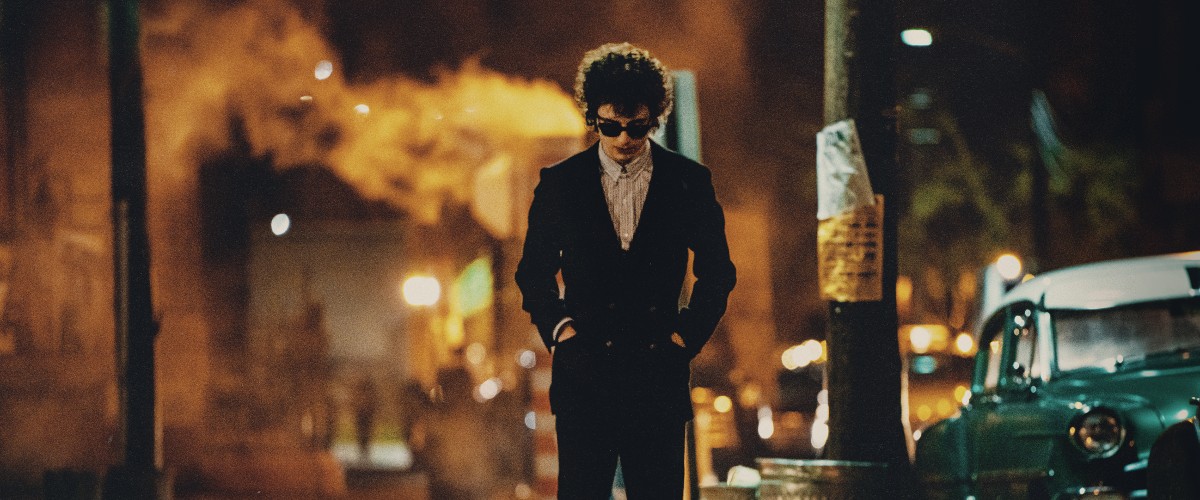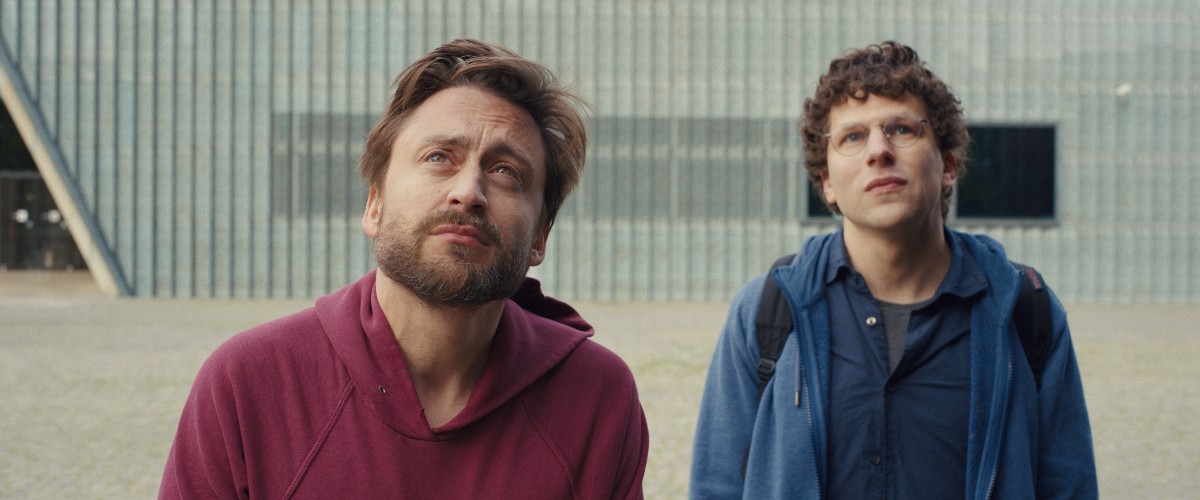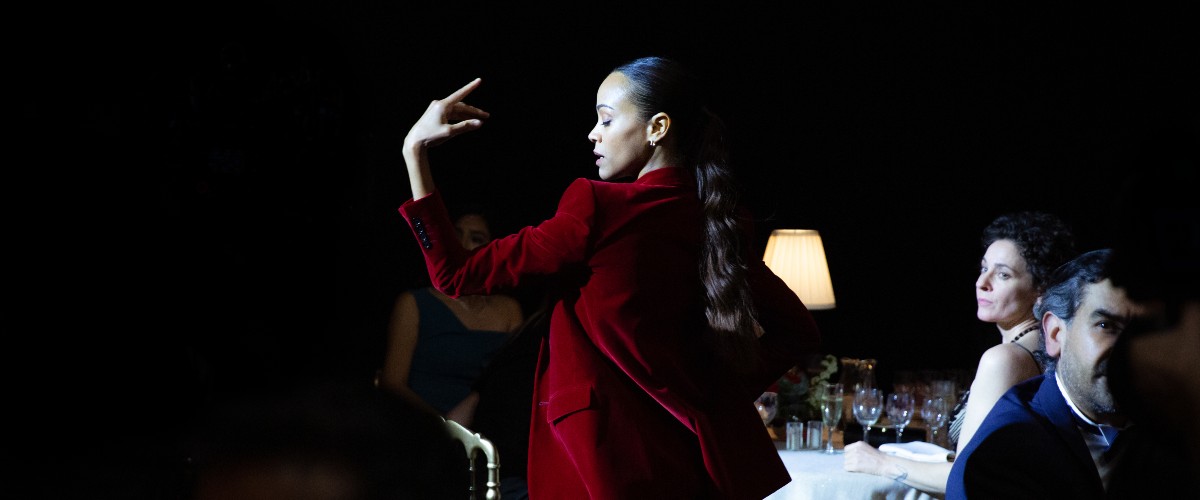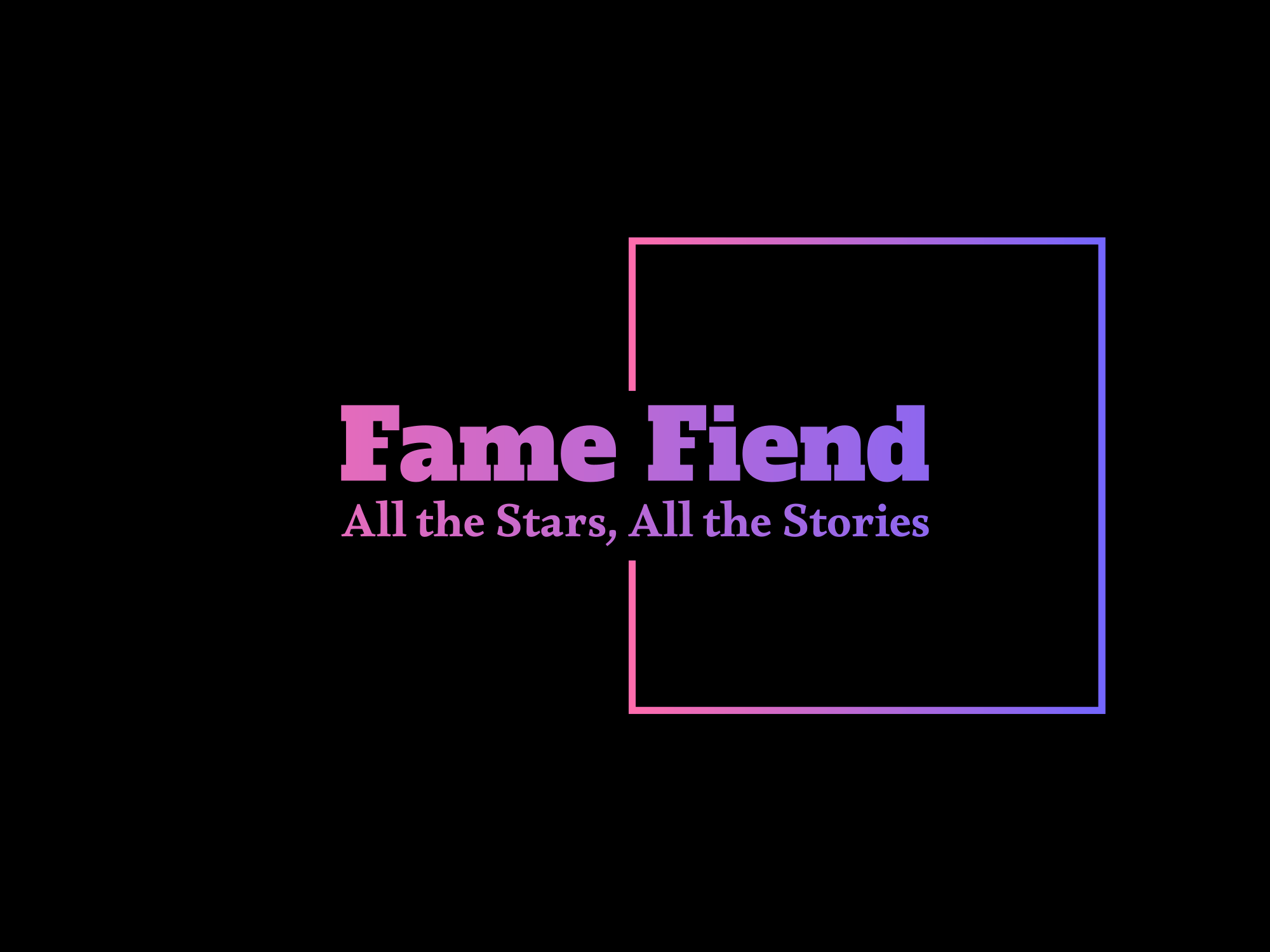Welcome to Oscar nominations week! After two pushbacks necessitated by the tragic Los Angeles wildfires, we’re finally here, and six months of questions, debates, and good-faith (lol) arguments are about to be answered.
This has been a weird season. Partially that’s because it’s been a year seemingly devoid of frontrunners, but also because the wildfires have drastically changed how Oscar season operates. Normally there are an insane number of campaign events during the Oscar voting period, as the would-be contenders try to schmooze out every last vote. This year, those events were nearly all canceled, leaving the films and performances to actually speak for themselves. Each year I normally go on a mini-rant about why the Golden Globes don’t really matter that much. But this year, in the absence of nearly any Oscar-related events since the Globes aired two weeks ago, they were basically the first, last, and only impression on the races many voters ever received.
Despite the extended voting period, the wildfires also likely affected how many of the contending films voters actually watched. Every year brings loud and open questions of the “Did voters actually watch Movie XX?” variety, but this year, those questions may become even more deafening. Even for voters who never had to evacuate their homes, it’s understandable that their minds may have been occupied by more than just whether they really, actually need to watch the Donald Trump movie or the second half of “The Brutalist.” (I kid!) That could lead to fewer nominated films than we’re used to, with a much larger percentage of acting nominations coming from Best Picture nominees. (I’m predicting that 18 of the 20 acting nominees will come from Best Picture nominees, which would almost certainly be a record.)
Predictions for the major races follow below, with all of the (realistically) potential contenders listed in order of their likelihood of being nominated, and my official predictions for nominations listed in bold. Enjoy the final few days of hope for your favorite films and then join me back here Thursday morning to assess the damages.
BEST PICTURE
- “The Brutalist”
- “Anora”
- “Conclave”
- “Emilia Pérez”
- “Wicked”
- “A Complete Unknown”
- “The Substance”
- “Dune: Part Two”
- “A Real Pain”
- “Sing Sing”
- “Nickel Boys”
- “September 5”
- “Challengers”
- “I’m Still Here”
- “A Different Man”
As usually happens by this time of year, the Best Picture race has sorted itself into three tiers. Six films look guaranteed of their spots: “Anora,” “The Brutalist,” “A Complete Unknown,” “Conclave,” “Emilia Pérez,” and “Wicked.” All six of those films clearly have both the passionate support and the wide support needed, they will all likely be nominated for several craft categories, and each of them should receive at least two acting nominations. This is as wide open a race as we’ve seen in many years, but the eventual Best Picture winner will definitely come from that group of six.
Then, three films look reasonably safe to be nominated but will still be sweating it out until they hear their name called: “The Substance,” “Dune: Part Two,” and “A Real Pain.” In each case, there are questions about exactly how widespread the film’s support is among the Academy. “Dune: Part Two” should cruise to several nominations in the craft categories, but it’s only a long shot for Best Director and isn’t a factor in any of the acting races.
“A Real Pain” is a major contender for Best Original Screenplay and Best Supporting Actor, but that may be it. “The Substance” could factor in several races (director, actress, supporting actress, original screenplay, and makeup). Still, the graphic nature of its gore and body horror likely means that it’ll be a nonstarter for a large swath of voters. I expect all three films to receive Best Picture nominations, but it wouldn’t be a shock if one falls out.
And then there’s everything else—anywhere between two and a dozen movies, depending on how generous you want to be—likely fighting for only one remaining spot. Most of these have very little chance of being nominated, like “Juror #2,” “I’m Still Here,” “A Different Man,” “Challengers,” and “All We Imagine as Light.” More than likely, that final spot will be taken by one of three movies: “September 5,” “Nickel Boys,” and “Sing Sing.” And fascinatingly, or perhaps prophetically, the biggest thing those three films have in common is a widely maligned release strategy.
In the case of “Sing Sing” (distributed by A24), it was an oddly timed summer release and a slow rollout that left many confused about exactly when the film would reach different parts of the country. It was also re-released this past weekend in a move that will either look brilliant or too little too late, depending on how nomination morning goes.
Meanwhile, “Nickel Boys” and “September 5”—distributed by Amazon and Paramount, respectively—both skipped the traditional Toronto awards launch (opting to only play at the ultra-exclusive Telluride Film Festival) and then foolishly picked a late-January release for most markets, which means neither movie has had virtually any cultural footprint during Oscar voting. It’s a true double whammy of awards season mishandling, and it speaks to the real quality of both films that either one might still eke out a Best Picture nomination despite its inept campaign.
The Producers Guild—which also nominates ten films and is often the most accurate Best Picture bellwether—gave that final nomination to “September 5,” but that must be taken with several grains of salt because “September 5” is a movie about the importance of producers making tough, consequential decisions. Actors, on the other hand, are the largest branch of the Academy, and I suspect they’re more likely to support a movie about the transformative and redemptive power of acting. That’s why I’m betting on “Sing Sing” to be our tenth and final Best Picture nominee.

BEST DIRECTOR
- Brady Corbet, “The Brutalist”
- Sean Baker, “Anora”
- Coralie Fargeat, “The Substance”
- Edward Berger, “Conclave”
- RaMell Ross, “Nickel Boys”
- Jacques Audiard, “Emilia Pérez”
- Payal Kapadia, “All We Imagine as Light”
- Denis Villeneuve, “Dune: Part Two”
- James Mangold, “A Complete Unknown”
- Luca Guadagnino, “Challengers”
The disclaimer that always has to be repeated every year is that two things are true of the Academy Directors Branch—they tend to have the best taste of any Academy branch, and they also tend to yield the most surprises in their nominations. Whether it’s Greta Gerwig being left out for “Barbie” last year, Denis Villeneuve being left out for “Dune: Part One” three years ago, or Ben Affleck being left out for 2012’s “Argo” (the eventual Best Picture winner), the nominees for Best Director consistently provide the biggest shock on Oscar nomination morning.
So we have to be careful throwing around the “Safe” label with the contenders, and only two names feel truly safe: Brady Corbet (“The Brutalist”) and Sean Baker (“Anora”). Those are the only two contenders that not only received nominations from all of the major precursors but whose films also check off the important quadrifecta of critical adoration, audience raves, financial success, and obvious degree of difficulty. Every other contender is fighting a battle on one or more of those fronts.
Coralie Fargeat succeeds on most of those fronts, too, but “The Substance” faces the different, arguably bigger challenge of genre bias. But after BAFTA, SAG, and the Globes showed obvious love for the film, what once felt like a long shot hope for a nomination now looks close to a third lock. Yes, Fargeat missed with the DGA (who went with James Mangold), but that’s not surprising given the populist lean of the guilds.
On paper, Edward Berger (“Conclave”) and Jacques Audiard (“Emilia Pérez”) should be the final two nominees, and that’s certainly the most likely outcome. Being European should also help them with the exceedingly international Directors Branch. But with Fargeat also a likely nominee, can three Europeans really get in? And Berger faces the additional challenge of having helmed the least showy film of the major contenders, while Audiard faces the unenviable hurdle of his film being the subject of much online vitriol, from critics and audiences alike. That divisiveness shouldn’t be a problem in the acting races, but it could be a real issue with the snobbier Directors Branch.
If either Berger or Audiard are left out, who could take their place? James Mangold received a DGA nomination for “A Complete Unknown,” and Denis Villeneuve received a BAFTA nomination for “Dune: Part Two,” but the Directors Branch usually looks toward artier fare than a Hollywood music biopic or franchise installment. Payal Kapadia received a Golden Globe nomination for “All We Imagine as Light,” and India’s inexplicable failure to submit the film for consideration for Best International Film means this is likely the only category to honor it, which voters are surely aware of.
And then there’s the incredible vision RaMell Ross brought to the screen with “Nickel Boys,” turning the film into a poetic first-person journey. It’s undoubtedly one of the year’s most singular directorial achievements, but a late release has contributed to the film’s struggles to gain much traction with other awards bodies, settling for one nomination each from BAFTA and the Globes.
Last year, it looked like Greta Gerwig was safely in while Justine Triet (“Anatomy of a Fall”) and Jonathan Glazer (“The Zone of Interest”) were fighting for the final spot, but then both Triet and Glazer were nominated while Gerwig was left out. Something similar could happen this year, with either Ross or Kapadia getting in while either Berger or Audiard is left out. In what feels like a four-way toss-up for the final two spots, I don’t want to predict the chalk outcome—Berger and Audiard getting the final two slots—with a branch that almost never votes chalk.
So I’m rolling with Ross (who made a film I love) over Audiard (who made a film I do not love), because I struggle to imagine the Directors Branch nominating someone whose film is the subject of such vehement backlash. Yes, it’s happened before, most recently with Ruben Östlund (“Triangle of Sadness”), Todd Phillips (“Joker”), and Adam McKay (“Vice”), but that dreadful 2.6 Letterboxd rating for “Emilia Pérez” has scared me away from Audiard. That’s a deeply imperfect reason, but predicting what the Directors Branch will do is itself an exercise in imperfect reasoning.

BEST ACTOR
- Adrien Brody, “The Brutalist”
- Timothée Chalamet, “A Complete Unknown”
- Ralph Fiennes, “Conclave”
- Colman Domingo, “Sing Sing”
- Hugh Grant, “Heretic”
- Sebastian Stan, “The Apprentice”
- Daniel Craig, “Queer”
- Sebastian Stan, “A Different Man”
- Jesse Eisenberg, “A Real Pain”
- Glen Powell, “Hit Man”
The most ubiquitous question of this awards season has been who will claim the fifth Best Actor slot. It’s been a weird race where four of the slots have been seemingly sewn up for months by Colman Domingo (“Sing Sing”), Adrian Brody (“The Brutalist”), Ralph Fiennes (“Conclave”), and Timothée Chalamet (“A Complete Unknown”), but no one quite passes the smell test for that fifth spot.
Predictions have mostly settled on Daniel Craig for “Queer,” and Craig was nominated by both SAG and the Golden Globes. But I harbor serious doubts about whether “Queer” (or Craig’s performance in it) will work for most voters, and Craig’s omission from the BAFTA nominations looked especially glaring for such a beloved Brit. But if not Craig, then who?
Sebastian Stan is somehow both the most likely and the least likely alternative, because of the very legitimate concern that he’ll split his own vote between his two starring roles (“The Apprentice” and “A Different Man”). One of the stories people have been keeping their eye on all season was whether either of those movies would manage to supplant the other as the obvious contender that Stan should be campaigning for, and that emphatically hasn’t happened. Stan won the Golden Globe for “A Different Man” and then received a BAFTA nomination for “The Apprentice,” only confusing matters further.
Two other possibilities are Jesse Eisenberg and Hugh Grant. Eisenberg has the benefit of being in the movie (“A Real Pain”) that voters probably like the most, and as the writer/director of that film voters may feel especially inclined to support him. The big obstacle there, though, is that Kieran Culkin so clearly steals the movie, and leaves the viewer barely even aware of Eisenberg’s (very good) performance.
Meanwhile, Grant will have to overcome the Academy’s bias against horror films to be nominated for “Heretic,” but in a year where Demi Moore has emerged as a frontrunner for a horror film, maybe that’s not the tall order many assume. Plus Grant’s new “villain era” has made him even more adored than he already was, and he’s widely viewed as long overdue for Oscar recognition (he’s never been nominated before). In what’s essentially a contest between what significant obstacle worries me the least, I’ll take Sinister Hugh Grant mansplaining Monopoly and Radiohead in “Heretic.”

BEST ACTRESS
- Mikey Madison, “Anora”
- Demi Moore, “The Substance”
- Cynthia Erivo, “Wicked”
- Karla Sofía Gascón, “Emilia Pérez”
- Marianne Jean-Baptiste, “Hard Truths”
- Fernanda Torres, “I’m Still Here”
- Kate Winslet, “Lee”
- Nicole Kidman, “Babygirl”
- Angelina Jolie, “Maria”
- Pamela Anderson, “The Last Showgirl”
The biggest question I had for myself before I sat down to write this piece was whether or not I would predict Marianne Jean-Baptiste to get a Best Actress nomination. I believe Jean-Baptiste gave the single best acting performance I saw in 2024, and she was awarded Best Actress of the year by all of the country’s most prominent critics groups (New York, Los Angeles, Chicago, and the National Society of Film Critics, among many others). And yet, Jean-Baptiste wasn’t even nominated by SAG or the Golden Globes, the latter of whom literally nominated 12 lead actresses and still somehow couldn’t find room for her. That snub may have been the strangest moment of this awards season.
But finally, last week, Marianne Jean-Baptiste broke through with a BAFTA nomination, which I believe (and hope) means more for her prospects than those earlier omissions. Also in her favor are my doubts about anyone else having the overall strength to take her spot.
Let’s start at the top. Mikey Madison has been the presumptive favorite in this category since “Anora” premiered at Cannes last May, and though that’s no longer quite true, she’ll still cruise to a nomination. Cynthia Erivo has likewise had her spot locked up since “Wicked” premiered a few months ago. Demi Moore has survived initial doubts about whether the gratuitous gore of “The Substance” would scare voters away from the film to suddenly emerge as the category’s new frontrunner after a rousing acceptance speech at the Golden Globes. And Karla Sofía Gascón should be safe by virtue of the overall contention for “Emilia Pérez,” which is likely to receive the most total nominations.
And then it gets tricky. For months it was assumed Angelina Jolie was assured a nomination for playing Maria Callas in “Maria,” but tepid response to the film led her to being left out by both SAG and BAFTA, and it’s hard to imagine her finding enough support to succeed with the Academy. Saoirse Ronan’s campaign also fell apart due to similar indifference to her film, “The Outrun,” while Nicole Kidman’s chances for “Babygirl” never quite gelled in the way many expected. Kate Winslet and Pamela Anderson have both surprisingly emerged as contenders for nominations, but they’re hampered by not just tepid enthusiasm for their films, but also their limited ability to campaign during the wildfires .
That leaves Fernanda Torres for “I’m Still Here,” a Brazilian film expected to be a contender in the Best International Film race, and here’s where my personal failings must be exposed: “I’m Still Here” is the one film mentioned anywhere in this piece that I haven’t managed to see yet. Torres gave a great acceptance speech when she won at the Golden Globes, and by all accounts she gives a powerhouse performance in the film. She probably has the best chance at claiming the fifth spot in this race, but I simply cannot predict a performance I haven’t seen over a performance that I think is far and away the year’s best. So I’m betting my fictional dollars on Marianne Jean-Baptiste.

BEST SUPPORTING ACTOR
- Kieran Culkin, “A Real Pain”
- Edward Norton, “A Complete Unknown”
- Guy Pearce, “The Brutalist”
- Yura Borisov, “Anora”
- Clarence Maclin, “Sing Sing”
- Jeremy Strong, “The Apprentice”
- Stanley Tucci, “Conclave”
- Denzel Washington, “Gladiator II”
- Jonathan Bailey, “Wicked”
- Karren Karagulian, “Anora”
As with Best Director, Best Supporting Actor seems to be a seven-person race, in which five names appear safe(-ish), while two others loom as potential spoilers. The resumes of the top five contenders are nearly spotless: Yura Borisov (“Anora”), Kieran Culkin (“A Real Pain”), Edward Norton (“A Complete Unknown”), Guy Pearce (“The Brutalist”), and Jeremy Strong (“The Apprentice”) each received nominations from both BAFTA and the Golden Globes, and all but Pearce were also nominated by SAG (who went rogue and gave their fifth slot to Jonathan Bailey for “Wicked”). That’s about as much of a five-person consensus as we’ve ever seen in an Oscar acting race.
But it’s never really that simple, and a few major names remain significant threats. We have to start with Denzel Washington, who’s been nominated for 10 Oscars (and won two), and who steals the show in “Gladiator II.” While that film’s awards momentum has completely stalled out—and barely ever got started, at that—an actor so beloved by the Academy can never really be discounted. The same is true of Stanley Tucci, who’s only been nominated once, but who is also adored in the industry and has the added benefit of being in a film (“Conclave”) that voters probably really liked.
Intuitively, Jeremy Strong feels like the most vulnerable of the five frontrunners. His performance as Roy Cohn was the most memorable part of “The Apprentice,” but there are real questions about whether voters want to sit through a movie about Donald Trump. So far, the film’s subject matter hasn’t seemed to be an awards deterrent, but that could change given the current situation in Los Angeles. If the city’s tragic wildfires prevented voters from getting as deep in their To Watch stacks as they intended, that could mean more votes for the cast of “Conclave” or “Wicked,” which voters definitely watched, and fewer votes for films like “The Apprentice” or “Gladiator II,” which voters maybe never got to.
And then there’s Clarence Maclin, who was thought to be a real contender for playing a version of himself in “Sing Sing,” until he failed to get nominations from SAG and the Golden Globes. But now he’s back in the mix after being nominated from BAFTA, and that BAFTA nomination feels like it holds more weight than those earlier omissions, because SAG and the Globes generally place a higher value on movie stars, while BAFTA often has a, ummm, difficult time nominating African Americans (Denzel Washington has literally never been nominated by BAFTA).
So if Maclin can succeed with that group—the group who most resembles the Academy—his odds might be far better than were assumed. It could go either way, and I still think Tucci has a good chance despite no precursor nominations, but I expect Maclin to edge out Jeremy Strong for the final slot.

BEST SUPPORTING ACTRESS
- Zoe Saldaña, “Emilia Pérez”
- Ariana Grande-Butera, “Wicked”
- Felicity Jones, “The Brutalist”
- Isabella Rossellini, “Conclave”
- Monica Barbaro, “A Complete Unknown”
- Margaret Qualley, “The Substance”
- Jamie Lee Curtis, “The Last Showgirl”
- Danielle Deadwyler, “The Piano Lesson”
- Aunjanue Ellis-Taylor, “Nickel Boys”
- Selena Gomez, “Emilia Pérez”
When I wrote about the state of the major Oscar races following the fall festivals last September, I pointed out that this year’s Best Supporting Actress category could yield the most diverse slate of nominees ever, with Zoe Saldaña, Danielle Deadwyler, Aunjanue Ellis-Taylor, Selena Gomez, Adriana Paz, and Joan Chen all looking like contenders for nominations. So I’m as disappointed as anyone to turn in a final slate of predictions with five of those six women being left out.
How did that happen? “Wicked” and “A Complete Unknown” didn’t premiere until later in the fall, so Ariana Grande-Butera and Monica Barbaro weren’t factors yet, but their performances are so undeniable and crucial to their films that their contention took hold almost immediately. Chen, Paz, and Gomez, meanwhile, were probably always long shots. But Danielle Deadwyler (“The Piano Lesson”) and Aunjanue Ellis-Taylor (“Nickel Boys”) appearing to fall out of contention is troubling.
Who knows whether it’s because voters just aren’t watching their films (which is its own serious problem), or simply that voters think Isabella Rossellini gave a better performance with a curtsy than Danielle Deadwyler gave with her whole soul. And it’s no disrespect to Rossellini—who really did nail the hell out of that curtsy—to acknowledge that those roles and those performances do not carry comparable weight.
More than anything, it appears voters just really like Rossellini and want to support her, which also seems to be what’s happening with Jamie Lee Curtis’s campaign for “The Last Showgirl” (a case where I have fewer good things to say about the movie or the performance). While there’s nothing overtly nefarious about voters simply liking the actress behind the performance, it’s not a great look that this consistently seems to happen with white women, and consistently seems to happen at the expense of Black women. (Recall two years ago, when Curtis won this category over Angela Bassett, or Andrea Riseborough and Ana de Armas received shocking Best Actress nominations while Danielle Deadwyler and Viola Davis were curiously left out.)
Anyway. Saldaña and Grande are sure things here, while Felicity Jones looks relatively safe, though reports that voters aren’t watching the second half of “The Brutalist” (which features the entirety of Jones’s performance) are troubling and could hurt her chances. Rossellini and Barbaro appear to be the most likely other two nominees, but Rossellini must overcome a tiny role while Barbaro is fighting against almost zero name recognition (which equates to zero of the “Oh I just love her” votes that Curtis and Rossellini are hoarding).
If either misses out, Curtis is a big threat due to her campaigning chops, Margaret Qualley (“The Substance”) has the benefit of being in the movie voters probably like the best (or at least watched), and Danielle Deadwyler and Ellis-Taylor should still be possibilities based purely on the strength of their performances. Of all this year’s acting categories, Best Supporting Actress probably has the highest variance in how many ways the nominations could play out, but I give the edge to Rossellini and Barbaro.

